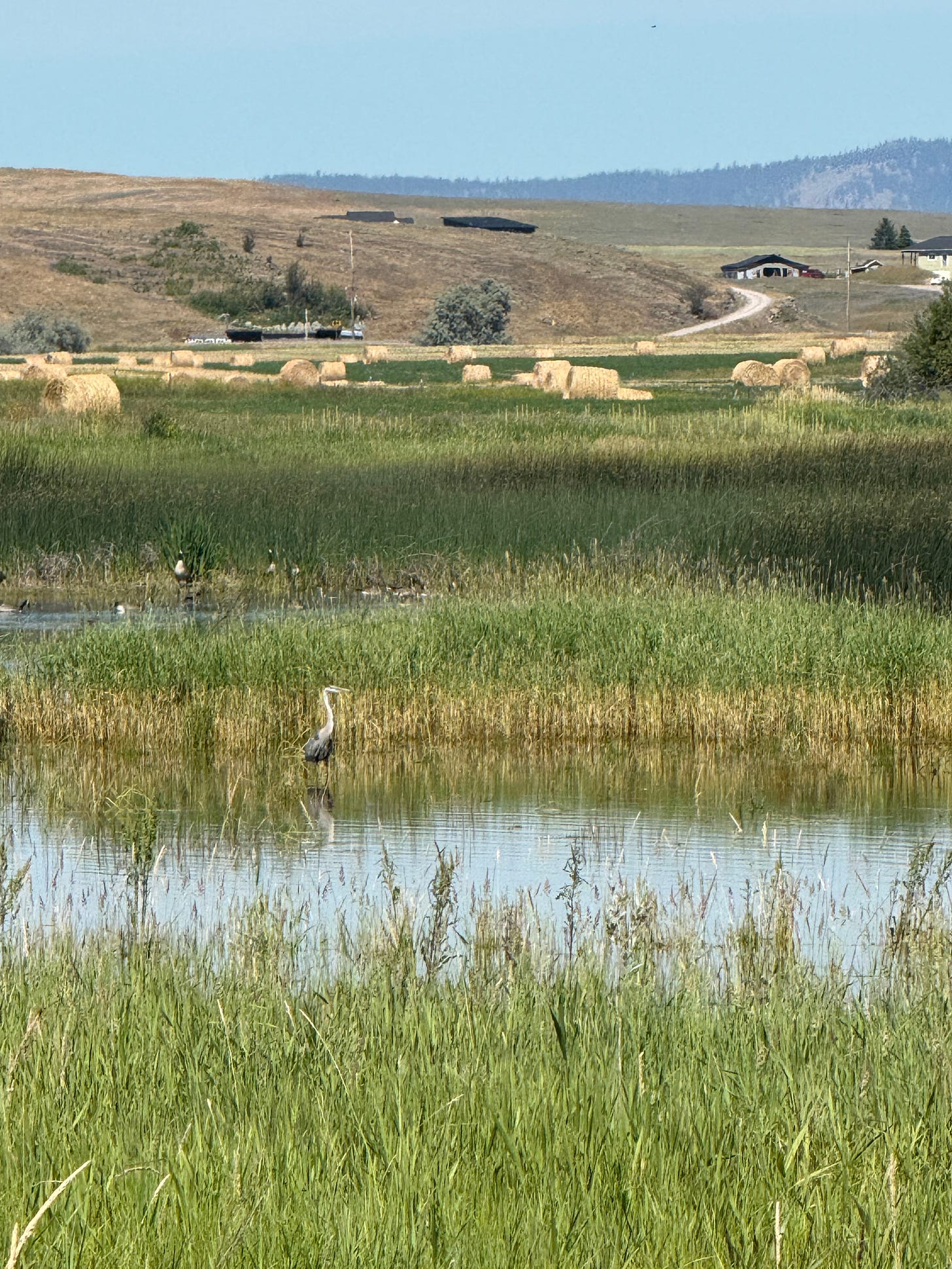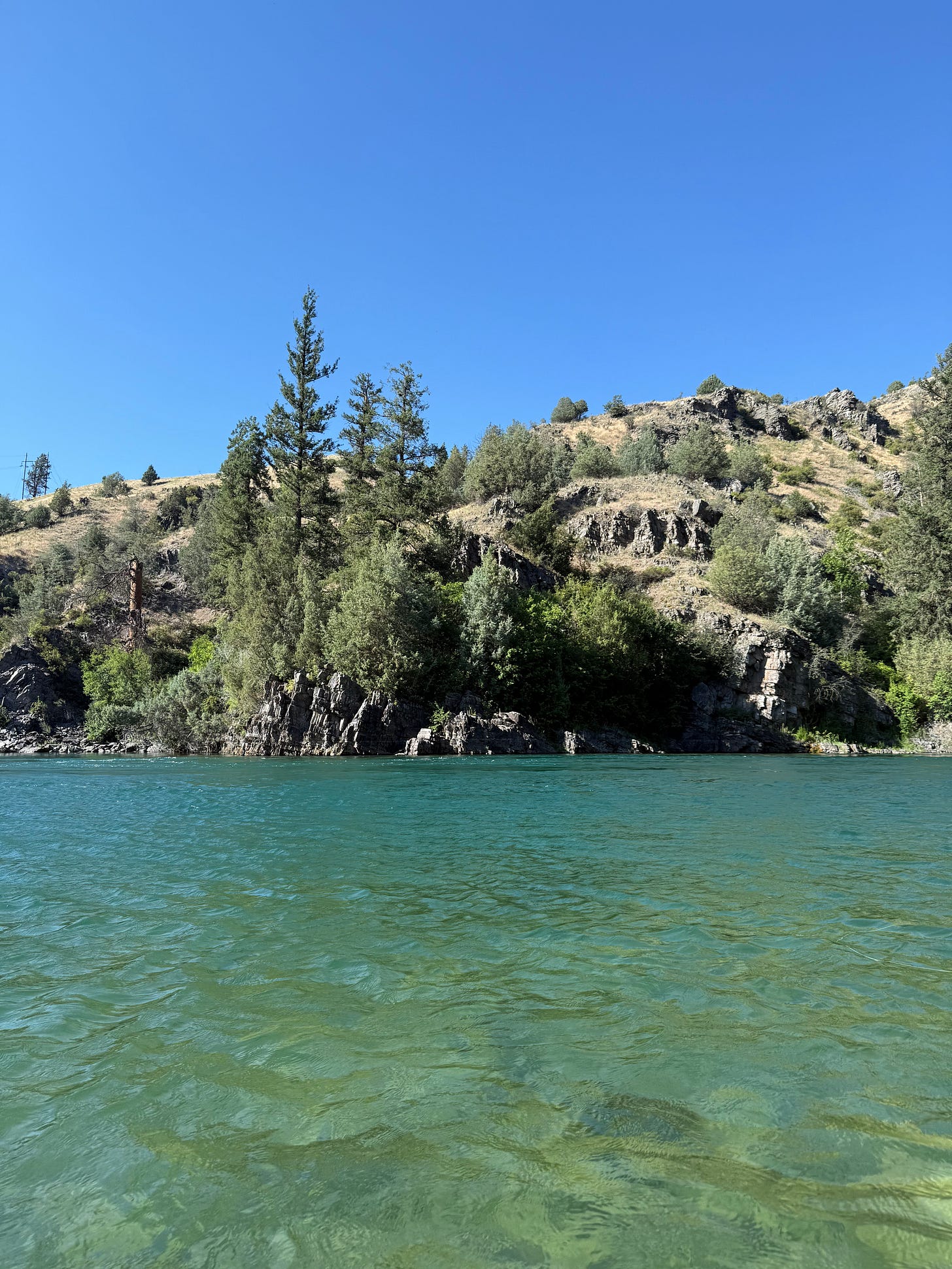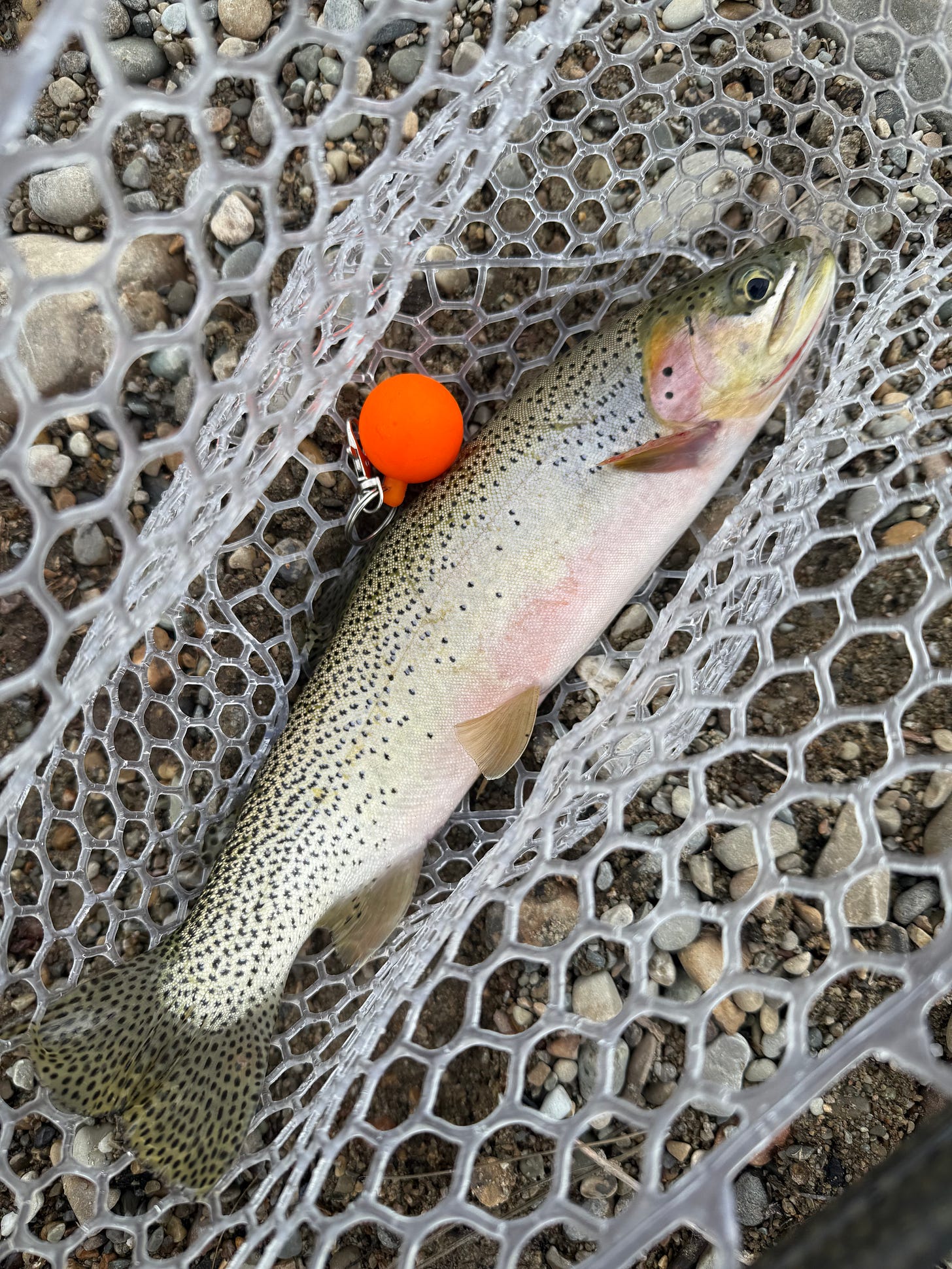Chickens, Hoppers, and Wild Fires
What fly fishing, grief, and seasonal shifts are teaching me this summer.
The past few weeks have been classic summer in Montana. Warmer weather, countless travelers strung along HWY 93, and watching the wildfire smoke drift over the horizon and into my backyard. The grasshoppers are hopping along, growing steadily into a solid chicken snack (watching chickens eat grasshoppers has me convinced of their “fully dinosaur” status). And so it goes with the fishing, it’s hopper season.
Rivers change throughout the year. In the summer, the waters are getting lower and warming up. In some places, we have Hoot-Owl restrictions where fishing is limited to the morning. I had no idea what the term meant, and the Google automatic-AI tool told me it is a logging term where, in the summers, loggers would only do what loggers do during the morning hours to lower the risk of hot afternoon fires. I suppose in most industries, fires are bad for business.
In the fall, the waters cool off, and some new bug friends show up. Rain and frost begin to make their way to the waters, changing the environment. Winter has very little bug activity, except for the mighty midge that hatches all the time. Springtime has all the bugs and the inevitable pause during the chocolate milk river runoff of snow and ice melt. For reasons that are beyond my thunderously small meteorological understanding, every season seems to have a reason to pause fishing for a while. I continue to be convinced that fly fishing has a metaphor for every aspect of life.
I believe my religious upbringing encouraged me to view life and seasons differently from my lived experience in nature. And, while I am occasionally a betting man, I imagine many of us have been led to believe that seasons of abundance aren’t also collated with seasons of rest, retreat, and reprieve. Seasons of harvest and abundance also have waiting, storing, and trading.
I recently sat with a patient who shared with me a litany of changes, challenges, and circumstances that forced them to adapt, grow, and become. From the loss of a spouse and a child to the fractures in relationships and declining physical health, they tearfully shared these “changes,” and faith has been a source and resource for meaning and support.
In my last unit of CPE, we were trained that chaplains occasionally get to function as a “challenger,” a ripple in the flow of thought. Every so often this looks like offering a reframe, asking for clarity, and sharing our understanding or misunderstanding. Most of the time, we hold a supportive, non-anxious presence. But occasionally, it is the responsibility of the chaplain to help move the patient along. I cannot recall where I heard it, but I continue to preach its truth: “It isn’t so much that people fear change, we fear loss.” In addition to the fear of loss, we also fear the subtle losses that occur along the path to losing.
In fly fisher terms, we know we won’t catch a fish on the 10th “last cast,” but we still believe saying those two words out loud offers an irresistible incantation to the trout. We hope they will respond to it with pity and bite the fly. They won't. And still, I can’t help but say them.
As this patient continues to share, the tears continue to come. I gently ask, “What can you tell me about these tears?” as if I were gently holding them. I hear the sobs of grief that we misinterpreted as sobs of change. I wonder if change and grief aren’t so different after all.
As someone on the spectrum, I don’t care for change all that much. I like my routines, my people, my food, and my environment to stay the same as much as possible. When things change, I usually turn to some sort of anger response, and I have come to learn that anger never shows up alone. For me, I think it is grief associated with change, the loss of what was, and the resistance to what is. And yet in that resistance, my curiosity and imagination wonder what could be.
My list of changes (and thereby griefs) recently isn’t so different than anyone else’s at any point in time. Distant family members have passed away, budget impacts at work, warmer days on the water, and extra responsibilities elbow their way onto my plate. Then comes the need for novelty, often in the form of looking at new fly rods, and I talk myself back from the “add to cart” as if it were a bear staring at me from 72 yards away.
I wonder how things would change if I learn to manage the way I think of seasons of life as having built-in breaks in the trajectory. Spring has rain, summer has Hoot-Owls, fall has frost, and winter in Montana has blizzards. I suppose adding a raincoat when I head to the cabin at the lake in the heat of August is simply making space for the inevitable.
I have done a bit of traveling lately and that always throws off my equilibrium for a week or so. The further I’ve gone from home, the more I just like staying near home. Between Missoula and Kalispell is about 120 miles. I wonder what it would look like to not have my responsibilities take me beyond the waters connected to those towns?
My curiosity about the beauty and wonder in the world will continue to bring me closer to home. All of my favorites are closest to home, my work, my family, the rivers, and hell, even the chickens that provide a source of wild wonderment as they chase down the grasshoppers.
I hope that we continue to cultivate the capacity for becoming, for finding peace and rest, actively keeping the fires of life in perspective.





Thank you AJ, this was a much needed read.,